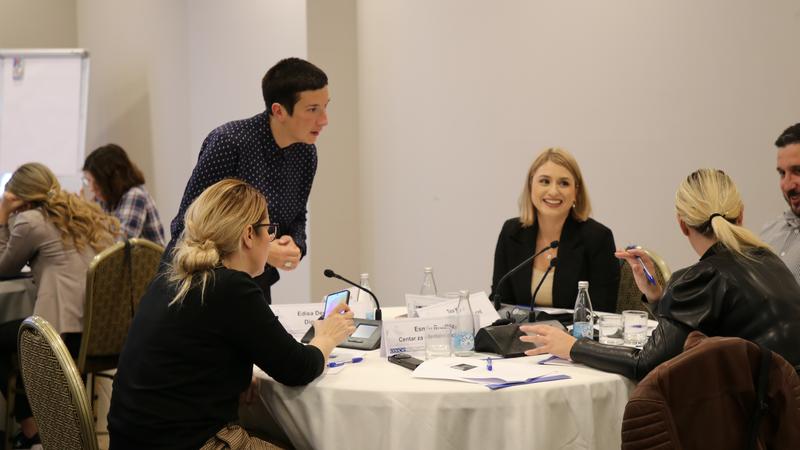Project
INFORMED: Information and Media Literacy in Preventing Violent Extremism – Human rights-based and gender-sensitive approaches to addressing the digital information disorder


Quick links
- Project period:
- May 2023 - April 2028
- Implemented by:
- Transnational Threats Department, OSCE Secretariat
- Fields of work:
- Countering terrorism, Women, peace and security
Overview
Violent extremist and terrorist groups often exploit the Internet in order to spread violent content, gain support, and recruit members. The COVID-19 pandemic saw a proliferation of hostile sexist and xenophobic conspiracy theories, highlighting the significant need to bolster critical thinking and analysis, as well as media and information literacy skills.
Emerging studies find that media- and information literacy can be useful for preventing the spread of misinformation/disinformation/malign information (mis/dis/mal).
To strengthen critical thinking and analysis, as well as media and information literacy skills, the Project provides practical capacity building for multi-stakeholder audiences on the analysis of online narratives, mechanisms of online information sharing and meaningful engagement in the digital space.
The Project also facilitates policy-level discussions, develops policy briefs and supports cutting-edge research to support policymakers in addressing these new challenges in a human-rights-based and gender-sensitive way.
Finally, the Project supports participating States in identifying opportunities for collaboration with non-government stakeholders, including the private sector and civil society, to create resilience to VERLT online.
Project Objective
Strengthen age- and gender-sensitive approaches in the prevention and countering of violent extremism and radicalization that lead to terrorism that manifests in, and stems from, online environments, in a human rights-compliant manner.
Project Results
- Build capacities on good practice media- and information-literacy approaches on VERLT online threats across the OSCE area and Partners for Co-operation
- Streamline the role of gender in the context of P/CVERLT online threats across the OSCE area and Partners for Co-operation
- Provide guidance for educators and parents on addressing VERLT online




